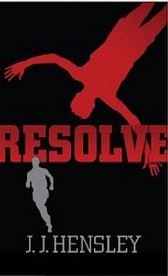by J.J. Hensley, @JJHensleyauthor
As most of you, I’ve read hundreds of mysteries and thrillers. And as most of you, I’ve recognized that many of them can be formulaic and use characters that are really cookie cutter stereotypes. I think one of the most overused characters in the mystery/thriller/suspense genre is the police officer who is incompetent, apathetic, or outright corrupt.
Now in the interest of full disclosure, I spent a decade in local and Federal law enforcement, so I have no illusions at objectivity. However, the fact of the matter is that 99% of the law enforcement community is hard-working, intelligent, and caring. The problem is that many storylines benefit from having a detective who isn’t doing her job, or a patrol officer planting evidence, or an FBI agent taking a bribe. It adds drama and there is a bit of shock value when someone in a position of authority fails to do his job. But, perhaps our writing can improve and be more unpredictable if we avoid using these stereotypes.
Here are some benefits to keeping the cops competent and clean:
- The story is more realistic:
Yes, there are often headlines about law enforcement officials getting into trouble. However, the media understandably latches on to these stories as police are (and should be) held to a higher standard. Additionally, the law enforcement community is much like the intelligence community as successes are rarely advertised but failures are magnified.
- It’s a “cop out” (pun intended)
Honestly, it’s kind of easy to toss in an apathetic city detective, or a Fed who insists on focusing on the wrong suspect. If you protagonist isn’t in law enforcement, it gives the character a reason to pursue the truth. But if you have the cops do their job well, you have to be more creative as to why your protagonist needs to be involved in a case. As a bonus – if your cops are better, you have to make your criminals smarter!
- You’ll Be Different
Last year I wrote a blog post about some ways police are inaccurately portrayed in the world of entertainment .
Unrealistic portrayals have become the norm. Be different. Be refreshing. Be accurate. Just as juries have become subject the “CSI Effect” (where they think a DNA analysis can be done in an hour and every thread leads to a conviction) readers can start believing other inaccuracies we perpetuate. Maybe the best way to improve our fiction is to get more real.
J.J. Hensley is the author of RESOLVE and other works of fiction.
RESOLVE has been named a finalist for Best First Novel by the International Thriller Writers organization.
RESOLVE was named one of the Best Books of 2013 by Suspense Magazine.
https://www.facebook.com/hensleybooks
https://www.goodreads.com/JJHensley
Twitter: @JJHensleyauthor

Excellent advice. We know lots of cops and all of them are hard working family men. They’re competent and they care. Definitely not the lame stereotypes!
J.J.–Thanks for the post and for the encouragement to think beyond stereotypes when writing about law enforcement. I shared a link on Twitter a few days ago from the Guardian newspaper in the UK (they’ve seen similar police stereotypes there): http://www.theguardian.com/books/2014/apr/29/crime-fiction-clean-living-cops-police-chief .
It’s always nice to offer something a little different to readers.
The media does that with everything = amplifies the negative and ignores the positive.I’m all for realism. Make it so.
Elizabeth – Thanks for hosting J.J.
J.J. – Thanks for reminding us that most law enforcement professionals do their jobs well and have high standards. They work hard and they care about that work. And it’s a timely reminder for me, as my WIP has more of a police presence than some of my other writing has.
I’m glad you posted this. It’s the one thing that turns me off in thrillers. My first book had one corrupt and one good cop (in Geneva). I tried the bad guy in several different roles, but she only fit into the scenario as a police captain. Her motivation for going over the edge was driven by social-climbing into the upper class and not typical job-greed. The good cop was a real hero.
What amazes me is how far off TV shows are with official portrayals. In Criminal Minds, an FBI team (problem) flies around the country in a private jet (giant problem)! And in BONES, the star is an FBI agent who investigates murders. The FBI investigates murders now? Did someone re-write the constitution? :)
Peace, Seeley
Peace, Seeley
Thank you all for your comments. The character of the bumbling or uncaring cop has become a tired one and I believe it leads us to be lazy in our writing. Not to mention… it makes me look bad! :)
J.J.–
The problem is this: cops–most them–doing their jobs well and honestly aren’t news. I live in Detroit, and in recent years we’ve had lots of news about the other kind. Naturally, a certain perceptual imbalance results.
But that’s another story. For me, the saturation point related to police procedurals, gum-shoe detective fiction and so forth was reached long ago. Now, I am only interested in reading the best: Michael Connelly, Elmore Leonard, and one or two other crime writers. What’s more interesting is amateurs, those who inadvertently discover themselves caught up in crime stories. But this is self-serving on my part: it describes what I write.
Something to definitely think about. And do better.
I couldn’t agree more. Another overused character is the cop who’s a drunk or addict. I never use these stereo-types. They are old and not very effective, IMO. Great post. Maybe now other crime writers, like myself, will be a little more imaginative. I can tell you the caring, lovable cop can be just as effective as the crooked one. You just need to set the stakes differently.